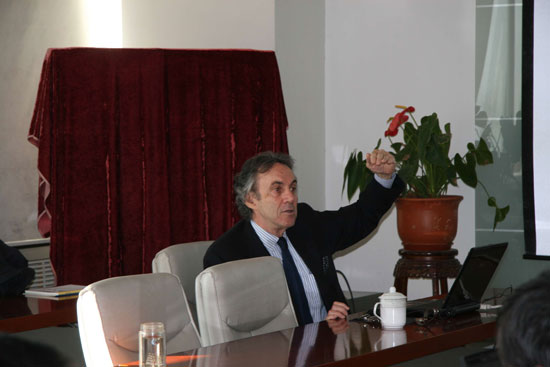Italian Scholar on Global Governance of the Multi-polarized World
On November 4, 2010, Prof. Paolo Guerrieri of
In his presentation titled THE ROLE OF THE EUROPEAN UNION and CHINA IN THE GLOBAL GOVERNANCE OF THE MULTIPOLAR WORLD ECONOMY, Guerrieri said that the rise of new powers is making the world economy increasingly multi-polarized and the dramatic financial economic crisis seems to be reinforcing the existing trend toward a multipolar world. But the nature of this world system is far from clear and the crisis could affect it in different ways. “Will it be competitive, based on the assertion of national power, or cooperative, framed by international rules? How new actor as
Guerrieri believed that, in terms of its export to GDP,
Guerrieri called the model of export-led growth and aggressive exchange rate policies as neo-mercantilism. He was concerned that more protectionism (non-tariff barriers) and neomercantilistic policies will trigger damages to the current world system. “And this is not a cyclical phenomenon but a key feature of the new multi-polar global economy. The earlier wave of globalization (1815-1913) collapsed because of the inability of the international system to cope with the tensions created by the expansion of global finance and trade,” he said.

